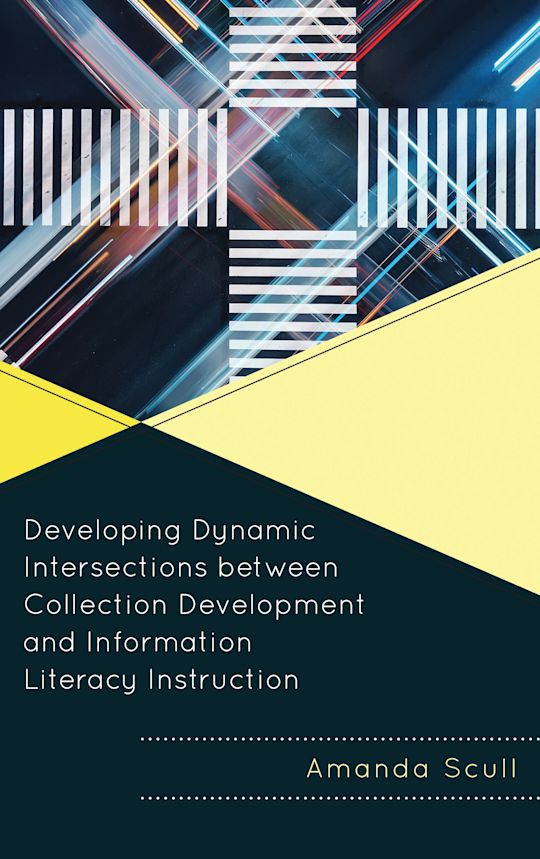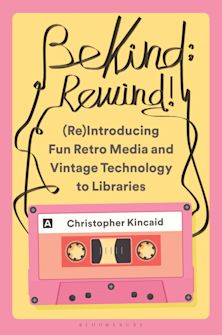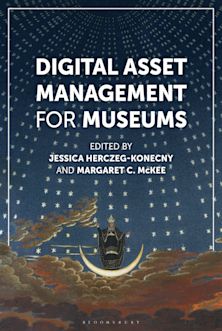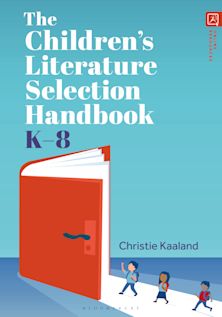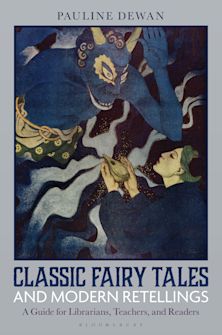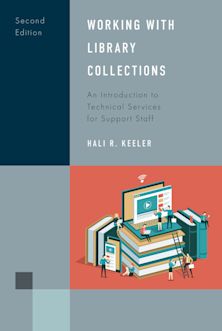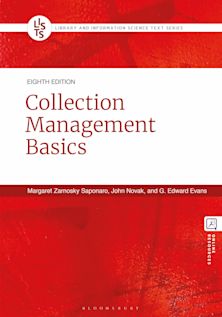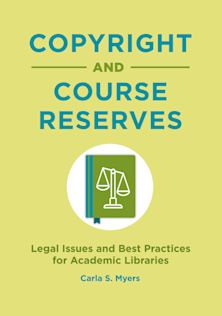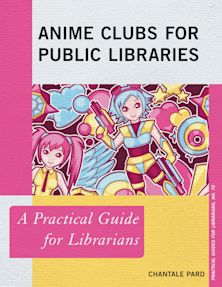- Home
- ACADEMIC
- Library & Information Science
- Collection Development and Management
- Developing Dynamic Intersections between Collection Development and Information Literacy Instruction
Developing Dynamic Intersections between Collection Development and Information Literacy Instruction
Developing Dynamic Intersections between Collection Development and Information Literacy Instruction
You must sign in to add this item to your wishlist. Please sign in or create an account
Description
Developing Dynamic Intersections between Collection Development and Information Literacy Instruction identifies the intersections between collection development and information literacy instruction and provides a practical guide for improving communication and collaboration between these two areas of the library. The early chapters explore general issues that are widely applicable across academic libraries, including a reading of the ACRL Framework for Information Literacy in Higher Education through the lens of collection development and discussions of communication and acquisitions budgeting. The later chapters examine undergraduate research and open access initiatives as specific opportunities for collaborative work, culminating in a chapter on special collections and archives that presents exemplary initiatives from this specialized area that can be adapted to the general library. Drawing upon original research and interviews, as well as professional experience and a large body of literature, this book provides a foundation for instruction librarians and collection librarians to begin exploring the intersections of their work as well as practical suggestions and ideas for building upon that foundation through implementation. Collection librarians, instruction librarians, library administrators, and professional staff who work in these areas will benefit from this book.
Table of Contents
Chapter 1: Collections and the ACRL Framework for Information Literacy for Higher Education
Chapter 2: Communication between Collection Librarians and Instruction Librarians
Chapter 3: Library Budgets and Their Implications
Part 2: Collaborative Undertakings
Chapter 4: The Library’s Role in Undergraduate Research
Chapter 5: Open Access Resources, Collections, and Instruction
Chapter 6: Dynamic Intersections between Collections and Instruction: Models from Special Collections and Archives
Appendix A: Communications of Collection and Instruction Librarians Survey
Appendix B: KSCommons Collection Development Policy
Product details
| Published | 15 Sep 2017 |
|---|---|
| Format | Ebook (Epub & Mobi) |
| Edition | 1st |
| Extent | 176 |
| ISBN | 9781442272163 |
| Imprint | Rowman & Littlefield |
| Series | Innovations in Information Literacy |
| Publisher | Bloomsbury Publishing |
About the contributors
Reviews
-
Amanda Scull’sDeveloping Dynamic Intersections between Collection Development and Information Literacy Instructionclearly fills a gap in the literature. Certainly there is a plethora of material on information literacy, but few works are written for collection development librarians too. . . . Scull’s book deserves a spot in a library’s professional collection. Not only will those in public services glean ideas from her text, but so will those in technical services. Scull’s book would be ideal for a library book club and could be a wonderful conversation starter in the move toward eradicating silos.
Public Services Quarterly
-
This book provides a wealth of timely and useful information, affording the reader ideas for a thoughtful contemplation regarding the importance of cultivating communication and collaboration among all areas of the library. This book would be an invaluable read for any academic librarian already out there working in the field as a way to start the conversation at their institution. It could also be useful to library directors looking toward making philosophical or even organizational changes down the road.
Technical Services Quarterly
-
Developing Dynamic Intersections between Collection Development and Information Literacy Instruction is a welcome, well-written book on collection development in an age of the new ACRL Framework. Its introduction and six very clear, practical chapters reflect the timely influence of the Framework and metaliteracy. One of the many highlights for me was the detailed exploration of OERs and open access in chapter 5, with numerous current examples and applications that will be appreciated by today's librarian and faculty member. I also valued Amanda's insights about the need for supporting undergraduate research now that we are past the standards and into the Framework/Metaliteracy approaches that encourage active learner engagement and the creation of new knowledge. Overall, this book is a rich resource that is grounded in current theory and practice, while generating a host of new ideas and perspectives relevant to our complex higher education environment.
Thomas P. Mackey, professor and Vice Provost for Academic Programs, SUNY Empire State College
-
Developing Dynamic Intersections between Collection Development and Information Literacy Instruction, does an excellent job connecting collection development with information literacy instruction. Throughout the book there are numerous examples of the interconnectedness between library collections, including institutional repositories, special collections, open access resources, and information literacy instruction using the ACRL Framework for information literacy. This book will lead to new collaborative efforts between instruction and collection development librarians.
Diane Fulkerson, director, Information Commons\Library Services, University of South Florida Sarasota-Manatee
-
A much-needed exploration of the connections between information literacy and collection development as programmatic, functional, and organizational dimensions of academic library work. The author uses the ACRL Framework for Information Literacy as a platform for discussing these connections, and makes a convincing case for greater collaboration among collection developers and information literacy specialists, who too often lack common frames of reference and a shared vocabulary for thinking and planning together to advance the library’s mission. This volume is timely, eminently readable, and cogent in making its case for “dynamic intersections” between two library specialist groups who don’t always find common ground.
Craig Gibson, professor and professional development coordinator, The Ohio State University Libraries; cochair, ACRL Information Literacy Competency Standards for Higher Education Task Force
-
More than a thorough analysis of best practices for collection development strategies, this book lays a sound foundation for the need to pursue collaboration, innovation, and aspirational goals between librarians and all those they serve, internal and external to the library. Ms. Scull’s research demonstrates the intricate and rich ecosystem that academic librarians, faculty, and students interact in regularly.
Oscar Lanza-Galindo, director, Wolfgram Memorial Library, Widener University









